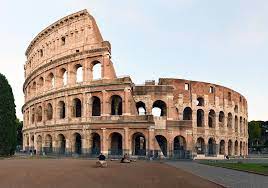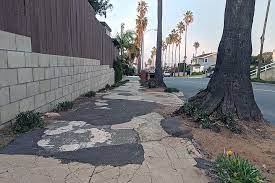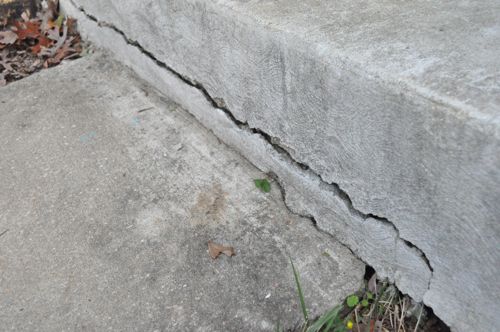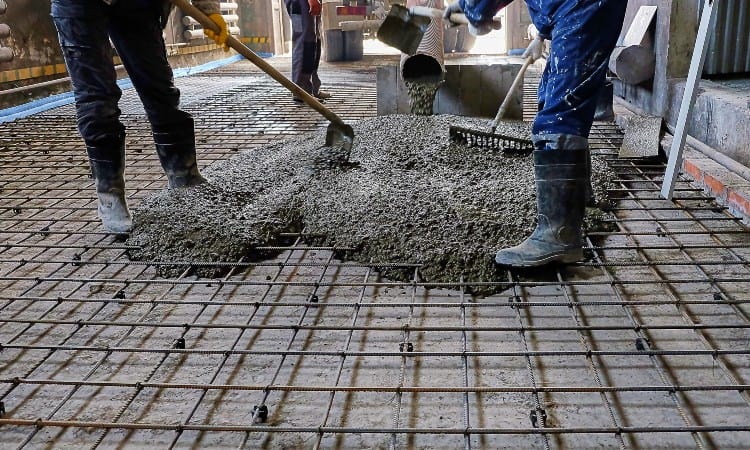How long will my concrete last in Los Angeles

by Alonso Romero
CA State Lic. Concrete & Masonry C-8
CA State Lic. General Contruction - B
Buckaroo Banzai the Concrete Nerd
Actual person performing the job
Date: 01/15/2024

The Coliseum. The Pantheon. What do these structures have in common? Yes, they were both built by the ancient Romans. But, what has been keeping them up for almost a thousand years? Concrete. The ancient Romans had devised a special concrete formula that researchers only recently cracked.
While your concrete may not last for a millennium, concrete is one of the most diverse and versatile construction materials out there. Think about it. Los Angeles has had housing booms since the 1880s. Some of that concrete is still all around us – for better or worse.
What causes concrete to crack in Los Angeles?

You may be wondering, why is my concrete cracking? Earthquakes? Believe it or not, no. I bet you’ve heard that water freezing and thawing can exacerbate cracks in concrete. That is true, but not something we have to put up with in sunny Southern California. No, we have another foe – tree roots.
The biggest enemy to concrete in Los Angeles is roots. Tree roots, grass roots, shrubbery roots – they’re all in search of water and they’ll move any concrete that’s in their way. Los Angeles, especially, is home to many fast-growing trees (ficus, anyone?) and those roots are relentless in their search for water. The roots grow under the concrete and cause the concrete to crack, buckle, and crumble.
Some other causes of cracked concrete include:

-
Lack of reinforcement: Most old concrete was installed without rebar to hold it in place. That older concrete is more susceptible to cracks.
-
Too few joints: Not Aunt Joan’s knees. We’re talking about those lines cut into concrete. Concrete expands and contracts as it heats and cools. It needs room to spread out a little. If you don’t have enough joints, the concrete doesn’t have any room to stretch and, you guessed it, it cracks.
-
Erosion: Water is one of the most destructive forces on Earth. It single-handedly created the Grand Canyon. Imagine what happens when water starts moving under your concrete. It takes the soil with it, leaving a pocket of air and room for your concrete to, yes, crack.
-
Improper installation: Remember the old adage – you get what you pay for? Well, when you hire a licensed concrete contractor, they understand that preparing the area for concrete is just as important as pouring the concrete itself. When concrete is improperly mixed, the soil isn’t adequately moistened, or the concrete Is allowed to dry too fast, that can cause the concrete to fail and crack. A licensed concrete contractor understands the methodologies in installing concrete and will ensure it is cured correctly to avoid the dreaded cracks.
What is the lifespan of my concrete in Los Angeles?

A major component in the lifespan of any span of concrete is how much traffic it gets. Let’s face it, a driveway gets a lot more use than, say, the walkway that houses your garbage cans. So, let’s break it down.
-
Concrete Sidewalk: Ahhh….concrete sidewalks. The bane of every homeowner in Los Angeles. Yes, mayors have been elected based on their plans for sidewalk repair. Sidewalks probably get the most wear and tear of any concrete around your home – what with the foot traffic, water wearing away at it and not to mention those roots we talked about before. You can expect your concrete sidewalk to last about 20-40 years. But don’t fret! There is some good news for LA homeowners. The city has a program to give you a rebate for fixing that trip hazard. You can get up to $12,000 to repair that sidewalk, provided you get the proper permits and hire a licensed concrete contractor.
-
Patios: You can expect your new patio to last you a good 30 years, or more, depending the amount of use it gets. The good news is that concrete patios need far less maintenance than a traditional wood deck, and it can support heavy items, such as barbeques or outdoor kitchens.
-
Concrete Driveway: Believe it or not, when you pour a new concrete driveway, you can expect it to last 40 years or more. You may be asking, how is that so, when driveways that are 20-30 years old are cracking? Newer methods of concrete reinforcement allow concrete driveways to last longer.
-
Stamped Concrete: Stamped concrete is one of those wonder products. It can literally mimic the look and feel of almost any construction material – slate, stepping stones, even wood! It can last as long as 30 years, as long as you properly maintain it.
-
Interior Concrete Flooring: This is the ultimate – indoor concrete flooring can last pretty much indefinitely, as long as it is correctly installed and sealed. The other great thing about concrete flooring? You can easily customize it with staining, adding patterns and even polishing it.
How can I make my concrete last in Los Angeles?

Well, the first thing you can to do to ensure that your concrete lasts as long as possible it to hire a licensed concrete contractor. They understand the best methods for installing concrete to ensure it lasts a lifetime. What does that entail?
-
Concrete Mix: Licensed concrete contractors understand that proportions are where it’s at when it comes to concrete mixing. Certain mixtures are best in sunny, hot climates, while other mixes are best for areas with freeze/thaw conditions.
-
Subgrade Preparation: What’s underneath all that concrete? Without a solid base of compacted gravel or crushed stone, your concrete has nothing to sit on. The thicker the subbase, the more weight your concrete slab can support. Plus, it provides uniform support for your slab, preventing erosion, cracking and settlement.
-
Reinforcement: Adding rebar or wire mesh before pouring concrete helps it withstand forces caused by heavy loads, drying shrinkage, and the regular expanding and contracting with heat. Even if cracking does happen, the severity will be limited when the right kind of reinforcement.
-
Proper Curing: Concrete likes to be babied after it’s poured. Properly curing it improves its durability by keeping moisture in the slab so that the concrete continues to hydrate and gain strength (this is partly why Roman concrete was so tough). If concrete is moist cured for seven days, it’s a whopping 50% stronger than uncured concrete. Wow!
-
Sealing and Maintenance: Want your concrete to last for decades? Power wash it and seal it every few years. That blocks moisture from penetrating the concrete. Plus, if you have stamped and colored concrete, washing and resealing it will restore it to its original beauty.
So, when you’re ready to install fresh concrete at your home, make sure you give us a call. Our licensed concrete contractor will work with you to ensure that your project is in line with both your vision and your pocketbook. Get a free quote today.